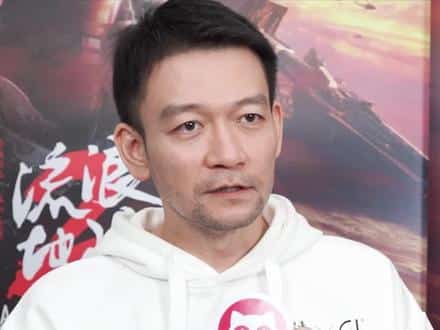With the sci-fi blockbuster The Wandering Earth II, directed by Guo Fan (郭帆 aka Frant Gwo) taking center stage during this Spring Festival movie season, there have been many social media discussions about the film and how it has been reviewed (read here), as well as about the production of the film, or more particularly, about the total production costs for this film.
Based on a story written by Liu Cixin, author of the award-winning sci-fi novel The Three-Body Problem, The Wandering Earth II is the prequel to the 2019 blockbuster hit The Wandering Earth, China’s all-time highest-grossing sci-fi film and the fifth highest-grossing non-English film of all time.
It is reported that the production investment costs for The Wandering Earth II reached approximately 600 million yuan ($88.5 million). Compared to the production budget of American sci-fi hit films such as Interstellar ($165 million) or Inception ($160 million), Chinese audiences had expected The Wandering Earth II to have much higher production costs than the reported budget, especially considering the spectacular scenes featured in the film.
The relatively lower production costs sparked discussions on Chinese social media, where the hashtag “Guo Fan – the Master in Begging for Alms” (#郭帆 化缘大师#) went trending, gaining in popularity as multiple insiders shared more stories about the production of the movie.
The hashtag, which suggests that Director Guo is a ‘Fundraising Master’ for keeping production costs low, has received over 70 million views at the time of writing. The Chinese 化缘 huàyuán means to raise funds for something or to ‘beg alms’ (like Buddhist monks or Taoist priests do).

Guo’s strict budget control already became a hot topic after the 2019 release of The Wandering Earth. One of the most famous stories is that of the movie’s main star Wu Jing (吴京), as he allegedly began as a guest celebrity and ended up as the leading actor without getting paid, while investing approximately 60 million yuan ($8.85 million) in the film’s production.
A female presenter recently also shared her story on Weibo about her free participation in the production of The Wandering Earth in 2019, which apparently showed the film’s tight production budget. In her post, she wrote: “They didn’t fool me, instead, they just told me directly that I wouldn’t get paid.” Considering the rare opportunity to act in a Chinese sci-fi production, she went to the set at her own expense and filmed scenes, including outdoor scenes in the snow and freezing cold, only to end up being featured less than a second in the finished film. Nonetheless, she said she was still proud to be a part of the landmark Chinese sci-fi film.
Perhaps the idea of taking part in a groundbreaking Chinese science fiction film has made many individuals, companies, and organizations willing to work with Guo’s team, even if no additional compensation or payment was provided.
XCMG Machinery (Xuzhou Construction Machinery Group Co, Ltd), China’s premier company in industrial design, is also one of these companies. The company set up a team of a total of 319 XCMG staff members to support the project and provided a wide range of operational and transformable machinery equipment for the UEG (United Earth Government) in the film. They called this “powering up Chinese Sci-fi with love.”
Chinese netizens already nicknamed Wandering Earth (流浪地球) “Little Broken Ball” (小破球) back in 2019. The “Ball” refers to the Earth – the second character (球) of Earth in Chinese (地球) literally means ball. It was the director himself who initially referred to his film this way, and this nickname was then popularized among netizens to describe how the Earth is in crisis in the film, but it also refers to how difficult it was for Guo to produce the film.
The fact that Guo managed to produce Wandering Earth II with a relatively limited budget compared to other big international sci-fi movies has instilled some pride among netizens. One popular blogger (@秦祎墨) suggested the actual production value of the movie went far beyond the quoted $88.5 million thanks to the collective spirit of Chinese companies who did all they could to turn this film into a mega hit.
Others praised Guo for being able to get so many people and companies involved, claiming that if it wasn’t for him, the movie would have ended up costing at least twice as much.
Some are already looking forward to a potential Wandering Earth III, saying that the ‘Little Broken Ball’ series has already managed to gather such a strong team of companies, technical support, post-production innovation and experts, that the ‘Wandering Earth universe’ should not stop after two films.
Reflecting on being nicknamed the ‘Master of Begging for Alms,’ director Guo himself reportedly expressed his gratitude toward everyone who worked on the film who was “tricked” by him, saying it is their generosity that eventually made the production of The Wandering Earth II possible.
By Wendy Huang, with contributions by Manya Koetse
Follow @whatsonweibo
Spotted a mistake or want to add something? Please let us know in comments below or email us. Please note that your comment below will need to be manually approved if you’re a first-time poster here.
©2023 Whatsonweibo. All rights reserved. Do not reproduce our content without permission – you can contact us at info@whatsonweibo.com
The post Wandering Earth 2 Production Costs: Why Director Frant Gwo is Nicknamed ‘Master in Begging for Alms’ appeared first on What's on Weibo.